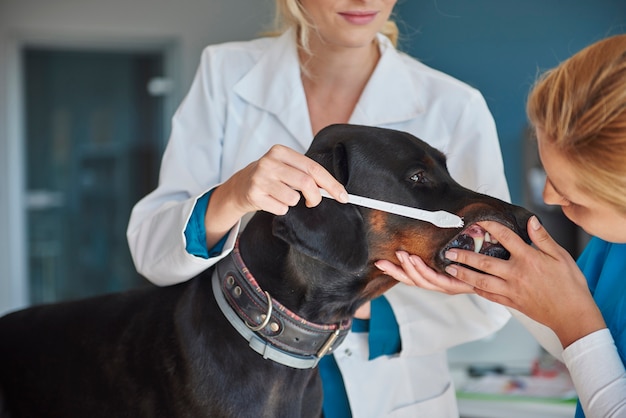Parasite Prevention Tips for Alpharetta Pet Owners

Parasite Prevention Tips for Alpharetta Pet Owners
Keeping your pet healthy and comfortable in Alpharetta means more than just regular checkups; it also requires year-round vigilance against parasites. Whether your furry companion enjoys romping in your backyard, hiking along local trails, or simply lounging in the sun, the warm Georgia climate creates a perfect environment for parasites such as fleas, ticks, and heartworms to thrive. At Alpharetta Animal Hospital, we know that protecting your pet from these threats is one of the most important responsibilities you face as a pet owner. In this blog, we will explore the essentials of parasite prevention, the significance of regular heartworm testing, and how local environmental factors can impact your pet’s risk. You will also discover practical tips for keeping your pet parasite-free and learn when it’s time to schedule an appointment with our veterinary team at 80 Milton Avenue, Alpharetta, GA 30009. If you have been searching for a "vet near me" who prioritizes comprehensive care, you are in the right place. For those interested in ongoing preventive care, our pet examinations and wellness exams offer a proactive approach to keeping pets healthy in Alpharetta and the surrounding communities.
Recognizing the Signs of Parasite Problems in Your Pet
Parasites can be sneaky, often causing subtle symptoms before more serious health issues develop. Recognizing early warning signs is key to prompt intervention and effective treatment. Pets struggling with flea infestations may scratch, bite, or lick themselves excessively; you might even notice hair loss, red or irritated skin, or tiny black specks that resemble pepper (flea dirt) in their fur. Tick bites, on the other hand, can be harder to spot; ticks often latch onto hidden areas such as ears, between toes, or under collars. Unexplained scabs, swelling, or the presence of a small bump on your pet’s body could be a clue that a tick has attached.
Heartworm disease presents its own unique challenges. Early signs in dogs may be mild, such as a soft cough, fatigue after moderate activity, or a decrease in appetite. As the disease progresses, symptoms like persistent coughing, difficulty breathing, and weight loss may appear. In cats, heartworm disease can be even more difficult to detect; some cats might show signs like vomiting, difficulty breathing, or sudden collapse, but others display no symptoms at all. Because signs can be nonspecific, routine heartworm testing is essential for early detection and successful management.
Why Parasite Risks Are High in Alpharetta
Georgia’s warm, humid climate supports a robust population of fleas, ticks, and mosquitoes throughout much of the year. Parasite prevention in Alpharetta is not just a seasonal concern; our mild winters mean that pests remain active for longer periods. Fleas thrive in moist, shaded environments and can quickly multiply, especially in homes with multiple pets. Ticks are commonly found in wooded areas, tall grasses, and even well-maintained suburban yards. Mosquitoes, the carriers of heartworm larvae, flourish in standing water and can easily find their way into your home or backyard.
Local pet owners need to be especially vigilant, as pets visiting dog parks, walking in community green spaces, or even interacting with wildlife around Alpharetta and surrounding communities may be exposed. The risk is not limited to outdoor pets; fleas and ticks can hitch a ride indoors on shoes, clothing, or other animals. With these local challenges in mind, effective parasite prevention in Alpharetta requires a multi-faceted, year-round approach.
Understanding How Parasites Affect Your Pet’s Health
Fleas and ticks are more than just a nuisance. Flea bites can trigger allergic reactions, cause anemia in severe infestations, and transmit tapeworms. Ticks are notorious for spreading diseases such as Lyme disease, ehrlichiosis, and anaplasmosis, all of which can cause long-term health problems if not treated promptly. Heartworm disease is particularly serious; left untreated, it can lead to severe lung disease, heart failure, and even death. The threat of heartworm infection is especially significant in Georgia, where mosquito activity is high for much of the year.
Professional Parasite Treatment and Prevention Options
When it comes to managing and preventing parasites, your veterinarian is your best ally. At Alpharetta Animal Hospital, our approach to parasite prevention in Alpharetta focuses on individualized plans tailored to your pet’s unique lifestyle and risk factors. Treatment options for fleas and ticks may involve topical medications, oral preventives, or collars designed to kill or repel parasites before they cause harm. In some cases, environmental treatments for your home and yard may also be recommended.
For heartworm disease, prevention is far more effective and less costly than treatment. Heartworm preventives, given monthly as a chewable tablet, topical liquid, or in some cases as an injectable, are highly effective when used consistently. Because heartworm preventives do not kill adult worms, annual heartworm testing is crucial for both dogs and cats. If your pet does test positive for heartworms, our veterinary professionals will discuss treatment options, which may include a combination of medications and supportive care, depending on the severity of the infection.
Routine pet examinations are an essential part of our parasite prevention program. During these visits, our veterinarians will assess your pet’s overall health, recommend the most appropriate preventives, and screen for any signs of parasite-related illness. This comprehensive approach ensures that your pet receives the best veterinary services near me, with ongoing support tailored to the needs of pets in Alpharetta.
Home Care Strategies for Year-Round Parasite Protection
While professional guidance is paramount, there are important steps you can take at home to reduce your pet’s risk of parasites. Consistent use of veterinarian-recommended preventives is the single most effective measure. Additionally, keeping your yard tidy by mowing grass, removing leaf litter, and minimizing standing water can help discourage fleas, ticks, and mosquitoes. Regularly washing your pet’s bedding, vacuuming frequently, and inspecting your pet after outdoor outings are simple actions that add an extra layer of protection.
Checking your pet for ticks after walks or playtime is especially important in wooded or grassy areas. Run your hands slowly over your pet’s body, feeling for any lumps or bumps that might indicate an attached tick. If you find one, it is best to contact our veterinary team for advice on safe removal. Remember, never use over-the-counter products without consulting your veterinarian, as some medications may be unsafe for certain breeds, ages, or species.
Staying informed about the local parasite activity levels—such as flea or tick outbreaks reported in Alpharetta and surrounding communities—can help you remain proactive. Many pet owners also benefit from reminders for monthly preventives or annual heartworm testing, which can be easily set up during your pet’s next appointment.
When to Seek Veterinary Care for Parasite Concerns
It’s not always easy to know when a situation requires a professional’s touch. If you notice persistent scratching, hair loss, visible parasites, or changes in behavior such as lethargy or coughing, it’s important to reach out promptly. Early intervention can prevent minor issues from becoming serious health risks. In cases of suspected heartworm disease, don’t wait for advanced symptoms to develop; schedule a heartworm test with our veterinary professionals as soon as possible.
For pets who are suddenly unwell, experiencing difficulty breathing, or suffering severe symptoms, immediate veterinary attention is essential. Even if you are unsure whether your pet’s signs are related to parasites, our veterinary team can perform a comprehensive evaluation and guide you through the next steps.
Our veterinarians are experienced in diagnosing and treating a wide range of parasite-related conditions, providing pet diagnostic laboratory services in Alpharetta as part of a thorough workup when needed. The earlier we identify and address these issues, the better your pet’s outcome will be.
Take the Next Step: Protect Your Pet with Parasite Prevention in Alpharetta
Your pet’s comfort and health are at the heart of everything we do at Alpharetta Animal Hospital. By partnering with our dedicated team of veterinarians, you can feel confident knowing your pet is protected from the risks posed by fleas, ticks, and heartworms. Scheduling regular wellness visits, keeping up with monthly preventives, and staying alert to changes in your pet’s health are the best ways to provide lasting protection.
If you have questions about parasite prevention in Alpharetta or need to arrange a heartworm test, we invite you to contact us at (770) 475-7613 or stop by our conveniently located clinic at 80 Milton Avenue, Alpharetta, GA 30009. Our veterinary team is here to support you, whether you are seeking comprehensive pet exams or searching for the best "vet near me" to deliver quality veterinary services near me. For more information or to schedule your next pet examination, reach out today and let us help you keep your pet healthy, happy, and parasite-free all year long.
This blog is for informational purposes only and does not replace professional veterinary care. Always consult your veterinarian for specific medical advice or concerns regarding your pet’s health.


















